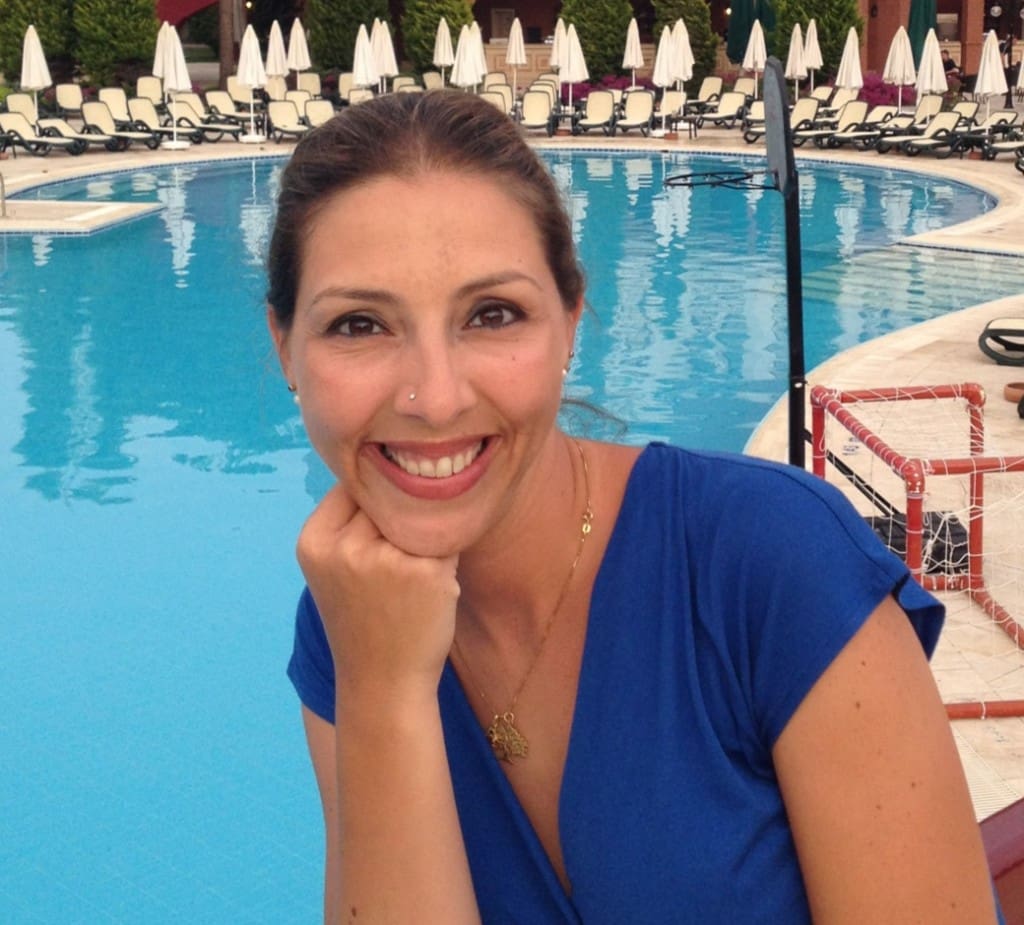Amani Awartani, Coach of the Palestinian Olympic Swim Team, smiles triumphantly as she recalls her first swim competition. Although in those days it wasn’t considered appropriate for girls to swim in mixed-gender competitions, she swam anyway. Amani came in first in freestyle and second in breast stroke.
Then came the first Intifada. “There were curfews. Everything was upside down,” she remembers. Amani was not able to pursue her swimming ambitions. She never competed again.
But no one can doubt that Amani is still an athlete. Besides her tall, strong physique, she oozes an enthusiasm for sports that is infectious.

“Swimming was new, then,” Amani reminisces. “There was a group of young men from Jerusalem who were instructors. They started teaching others how to train. For cultural reasons, men can’t train women, so that gave me an opportunity. I trained the women.”
Amani became a trainer when she was only eighteen. She also taught swimming to three and four-year-olds for two years. “They were sweet but exhausting,” Amani confesses.
Palestinian participation in the Olympics came later. A German man from FINA, the international governing body of swimming, visited the Palestinian Swim Federation, a post-Oslo volunteer organization that oversees swim training, the pools, sponsorships, and competitions. It was around 2007 or 2008. Amani joined the Palestinian Swim Federation.
Volunteers with the Palestinian Swim Federation learned how to put together a real training program. “Training is tailored for each race. For the 50 meter, you need speed, so you practice jumping, train for speed on land, speed in the pool. But for the 10K race, you need endurance. The training is different.”
According to Amani, people who swim for speed and people who swim for distance have different kinds of personalities. The speed swimmers have to deal with pain and the distance swimmers have to deal with exhaustion. Both have to be determined.
Even today, although the competitions are mixed, men and women train separately. And there are still many more boys than girls. “Overall, the sport of swimming still isn’t very popular in Palestine,” Amani laments. “One problem we have is that our pools are almost all outdoors. That means you can only train about three months each year. Even the few indoor pools—at the YMCA in Jerusalem and Bethlehem—aren’t good enough. They are only 25 meters long. There are no 50 meter pools anywhere in Palestine.”
There are rumors that the Palestinian Authority may build a 50 meter pool in Jericho and Amani hopes they’ll allow competitive swimmers to train there. Unfortunately, there isn’t very strong advocacy for swimmers in Palestine. The Palestinian Swim Federation was reorganized in 2012 and, due to some internal conflicts, they have to start to build their systems from scratch. They plan to hold competitions to record times for swimmers all over the West Bank and Gaza, to rebuild the database that is used to determine eligibility for competitions in the future. But even this simple activity has been scheduled and cancelled and rescheduled and is fraught with conflict and rumors of corruption. Moreover, although there have been many gains in the sport, Amani is still the only woman in the entire Palestinian Swim Federation.
Check back for the next part of this interview to learn about Palestinian participation in the Olympics. Meanwhile, leave your comments!
You are a Palestinian symbol that we are proud of. You have been a fighter since ever whilst holding the kindest heart ever. All the best at the Olympics for you and for the rest of the Palestinian team.
Thanks bro ;)) watch us on the 3rd of August ;))
We are very proud of you Amani. I hope that you will reach what you have hoped and wished for. Good Luck on the 28th.
Whatever happens, the Palestinians are winners for sure.